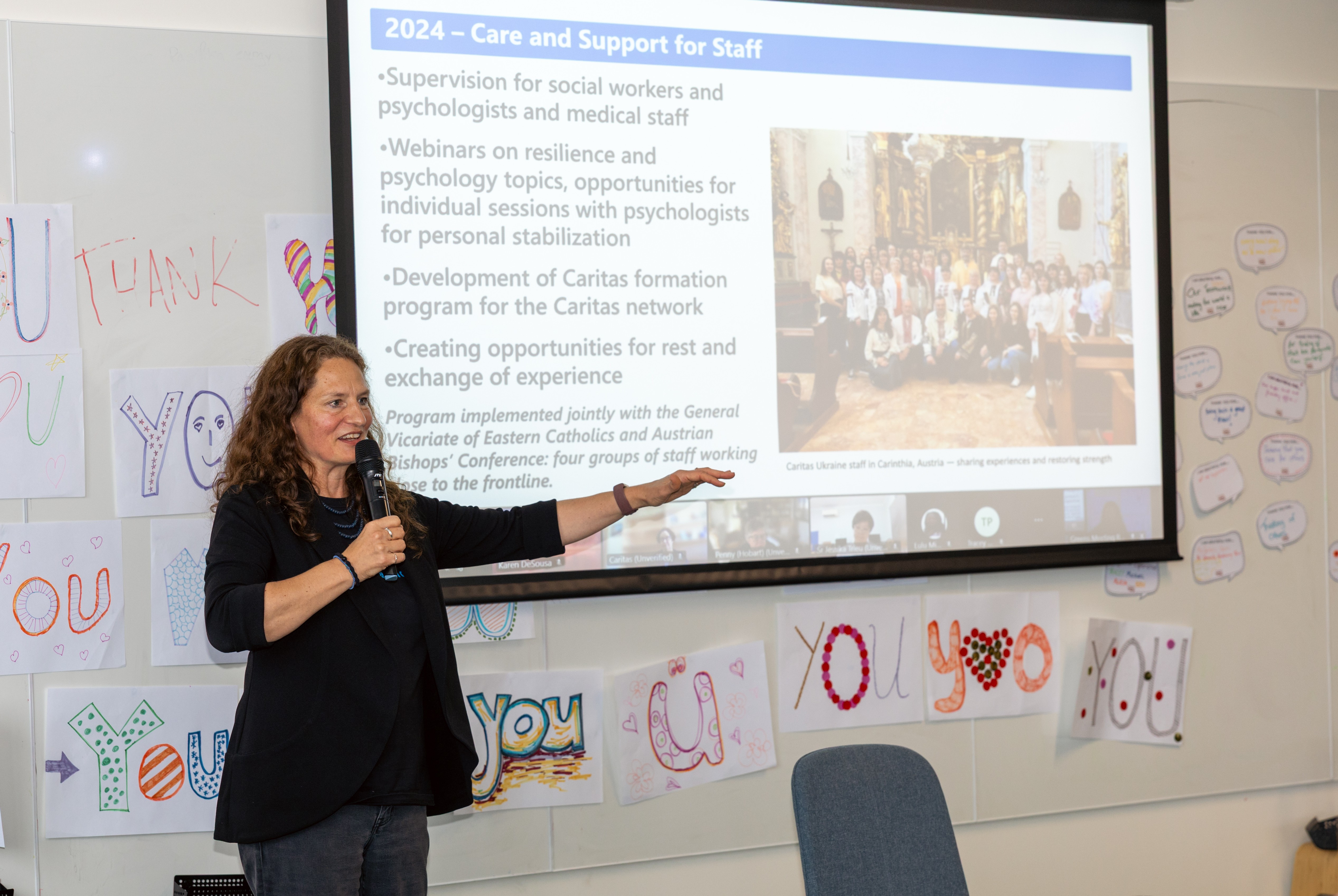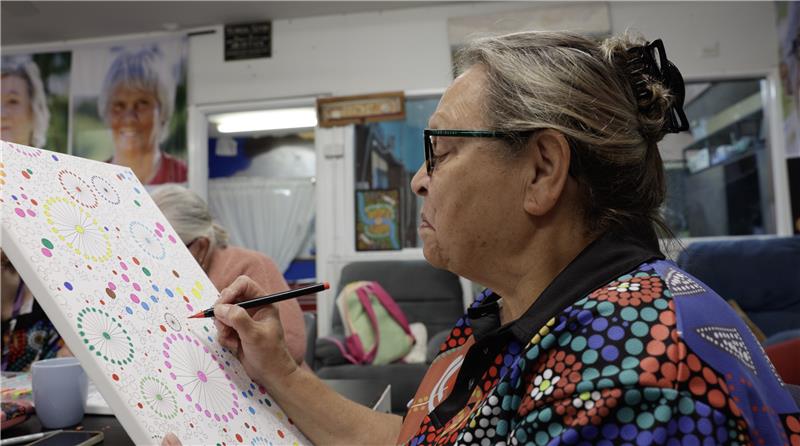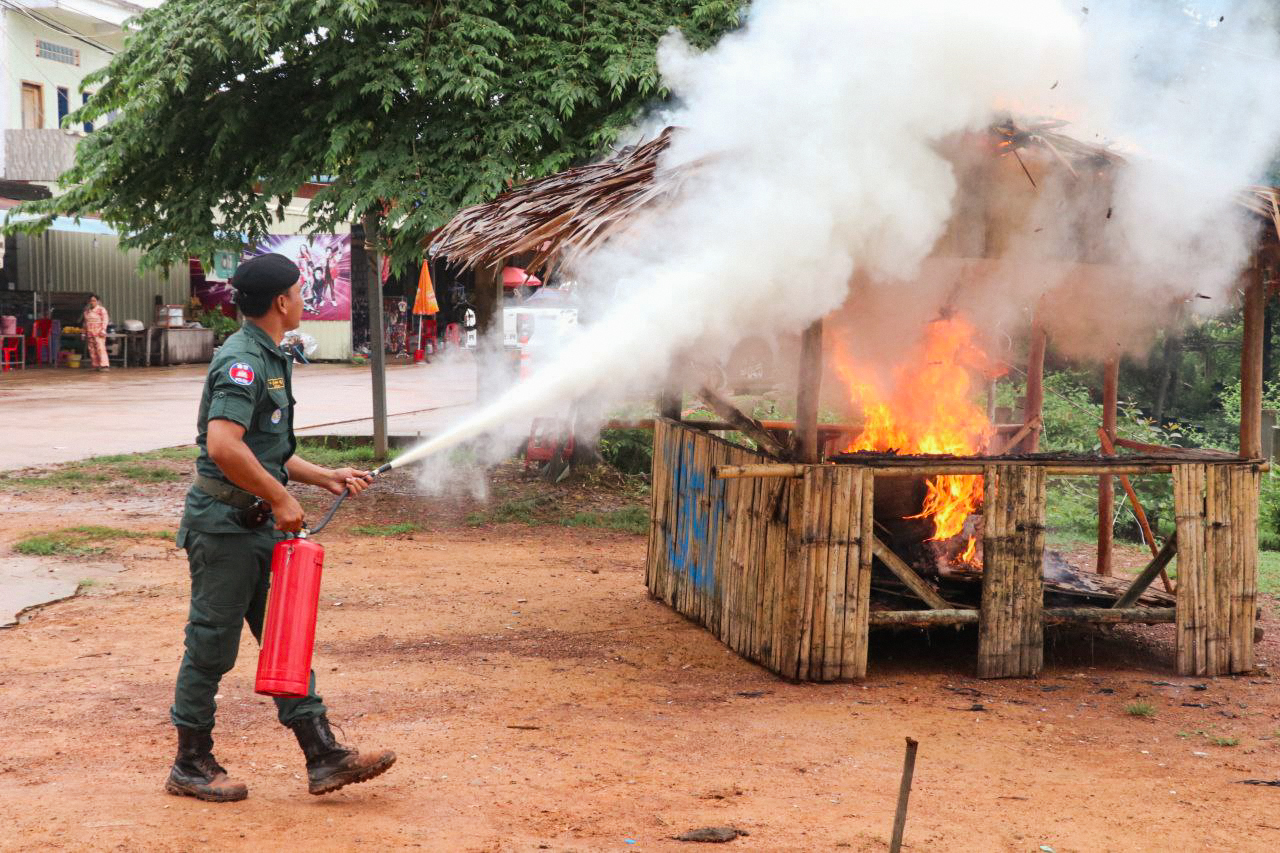When Tetiana Stawnychy, President of Caritas Ukraine, visited Australia this October, she brought with her a message of resilience, solidarity, and urgent need. Speaking to Caritas Australia staff and donors, she shared how the organisation has evolved to meet the shifting demands of a protracted war, now in its fourth year.
From emergency response to long-term recovery
In the early days of the full-scale invasion in February 2022, Caritas Ukraine mobilised rapidly. With over 24 million people affected, including 14 million displaced, the need for emergency humanitarian aid was overwhelming. Caritas Ukraine responded by distributing food, water, hygiene kits, and warm clothing, and setting up child-friendly spaces and psychosocial support hubs.
But as the war dragged on, the nature of the crisis changed. “We’re now in a layered response,” Tetiana explained. “There are still acute needs along the frontlines, but we also have millions of internally displaced people who require long-term support.”
Managing a protracted crisis
By 2025, Ukraine’s population had dropped from 42 million to 31.5 million. Over 12 million people remain in humanitarian need, and more than 4 million have lost their homes. Caritas Ukraine has adapted by expanding its services to include:
-
Housing repair and social housing pilots
-
Livelihoods programs to help people move from aid dependency to self-sufficiency
-
Primary care medical centres and rehabilitation services
-
Support for veterans and returnees from captivity
-
Advocacy for inclusive social reform
The organisation now operates across all oblasts in Ukraine, with over 2,500 staff, 11,000 registered volunteers, and partnerships with 700 local communities, including 394 parishes.
The challenge of declining funding
Despite escalating needs, humanitarian funding for Ukraine is decreasing. This has led to difficult questions: when does a humanitarian need become a social one, and who is responsible for long-term care?
These questions exist because of gaps in Ukrainian social services that stem from the long and difficult story of rebuilding and reforming Ukraine following liberation from the USSR in 1991, a process complicated by the outbreak of war with Russia in 2014.
To address this ongoing gap in services, Caritas Ukraine is now working closely with the Ukrainian government to reform the social protection system, open up funding to NGOs, and develop sustainable models of care.
In the meantime, for Caritas Ukraine, the answer is clear. “If someone is displaced because of war, they are still in need,” Tetiana Stawnychy said. “We don’t draw lines between humanitarian and social needs; we respond to the person in front of us.”
Solidarity in action
Tetiana’s message to Australian supporters was one of deep gratitude. “Everything we’ve done, we’ve done together. Your support has made us strong.”
She also spoke movingly about the resilience of Caritas staff and volunteers in Ukraine, many of whom continue their work amid nightly missile strikes and personal loss. “We get up in the morning after hours of explosions and go to work to help others. That’s how we stay resilient, by living our mission.”
She emphasised that the strength of Caritas Ukraine is not just in its programs, but in its people. “We are not just responding to a crisis. We are building something enduring: community, dignity, and hope.”
To donors and supporters in Australia, Tetiana offered heartfelt thanks:
“The resilience you see in Ukraine is not just about Ukraine. It’s about the solidarity we’ve had with all of you. You are part of our story, and we are deeply grateful.”
Caritas Australia continues to stand in solidarity with Caritas Ukraine, supporting its work through the Ukraine Crisis Appeal. As the crisis evolves, so too does the response, rooted in compassion, resilience, and faith in the dignity of every person.

















